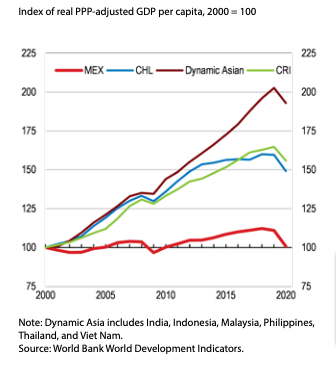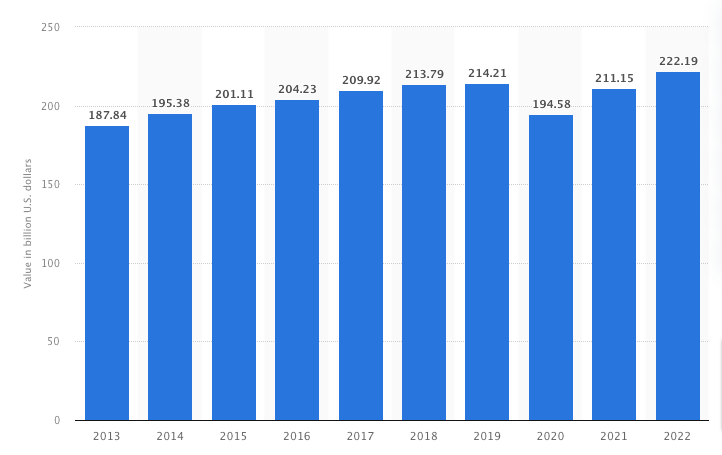Communication Styles
Communication styles in Mexico tend to be indirect and polite, emphasizing maintaining harmony and avoiding confrontation. Mexicans may use metaphors, analogies, humor, or body language in conversation to express thoughts or lighten the mood.
The indirect communication style in Mexico can result in potential misunderstandings and confusion. Therefore, it is imperative to be mindful of cultural nuances and to exercise patience when engaging with Mexican business partners, ensuring effective communication and a strong foundation for successful business relationships.
Business Lunches
Business lunches in Mexico are essential for building relationships and discussing matters in a more relaxed atmosphere. These lunches typically occur mid-afternoon, around 2:30 pm, and may last several hours, providing ample time for conversation and negotiation.
Business meals are often held in fine dining restaurants, and Mexicans may provide alternative food options for international business contacts. Business lunches can strengthen relationships and facilitate successful negotiations in the Mexican business environment.
Legal Considerations for Foreign Investors
Foreign investors should be aware of legal considerations in Mexico, such as company registration, tax regulations, and employment laws.
This part offers an overview of these legal considerations, assisting foreign businesses in maneuvering through the complexities of Mexican law and facilitating a smooth market entry.
Company Registration
Registering a company in Mexico involves obtaining permits, registering with the Public Registry of Commerce, and applying for a federal tax registration number. Companies with Foreign Direct Investment (FDI) must submit an application for registration with the Foreign Investment Registry within 40 business days of either the incorporation of the company or foreign investors’ participation in corporate capital.
It is essential to ensure that board members are qualified and adhere to the necessary requirements, such as providing a personal guarantee for the fulfillment of their corporate duties and declaring any conflict of interest before participating or voting in conflicted matters.
Understanding the company registration process and requirements enables foreign businesses to establish a foothold in Mexico successfully.
Tax Regulations
Tax regulations in Mexico include income tax, value-added tax (VAT), and local taxes, with various rates and exemptions depending on the business type and location. Mexico’s Value Added Tax (VAT) rate is 16%, while income tax is levied at 30% on a company’s net income.
In addition to these taxes, there are withholding tax rates for interest paid in Mexico and IP royalties, which can vary depending on certain factors and may be reduced or eliminated through double tax treaties.
Staying informed about Mexico’s tax regulations enables foreign businesses to ensure compliance and avoid potential legal complications.
Employment Laws
Employment laws in Mexico govern contracts, termination, and redundancy, with foreign employees requiring permits to work there. The Federal Labor Law dictates the termination of individual employment contracts and labor relationships in Mexico, and it is important to note that there is no employment at will in the country, so a justified cause for dismissal is necessary to terminate an individual’s employment without liability for the employer.
Ensuring a thorough understanding of Mexican employment laws and compliance with these regulations is crucial for foreign businesses operating in the country.
Overcoming Challenges in the Mexican Market
Establishing a business in Mexico can involve complex processes, and certain risks may be detrimental to the success of the venture. This part discusses the challenges businesses encounter in the Mexican market, including security concerns, bureaucracy, and language barriers, and outlines strategies to overcome these issues for successful business operations.
Security Concerns
Addressing security concerns in Mexico involves staying informed about travel advisories and implementing safety measures for employees and assets. Crime, violence, and drug trafficking pose significant security risks in the country.
The US Department of State recommends US citizens exercise increased caution in Mexico due to the risk of crime and advises being mindful of their environment and taking extra safety measures when traveling in the country.
Businesses can ensure the safety of employees and assets by investing in security systems and personnel, ensuring that employees are aware of security risks, and adopting appropriate safety measures.
Bureaucracy and Corruption
Navigating bureaucracy and corruption in Mexico requires patience, persistence, and a thorough understanding of local regulations and procedures. A lack of transparency, long and complicated procedures, and a lack of accountability contribute to bureaucratic and corruption issues in the country.
Staying informed about local laws and regulations helps foreign businesses maneuver through the intricacies of Mexican bureaucracy and diminish the impact of corruption on their activities.
Language Barrier
Overcoming the language barrier in Mexico may involve:
- Hiring interpreters or bilingual staff to facilitate communication and ensure understanding of local laws and customs
- Providing language training for employees to improve their Spanish skills
- Using translation services or software to translate important documents and communications
- Utilizing visual aids and gestures to enhance understanding in face-to-face interactions
- With Spanish being the official language and English not widely spoken, foreign businesses may face communication difficulties in the country.
Employing interpreters or bilingual personnel can help to bridge the language gap and foster effective communication with Mexican business partners and authorities.
Mexico Market Entry Strategies
Mexico Employer of Record (EOR)
As you explore the Mexican market, utilizing the services of a Mexico Employer of Record (EOR) can be an astute strategy. A Mexico EOR serves as the legal employer for your personnel in Mexico, alleviating the challenges and administrative tasks related to hiring and payroll compliance. Through an EOR, you can hire in Mexico within 24 hours, bypassing the need to establish a local legal entity.
Mexico Professional Employer Organization (PEO)
Venturing into the Mexican market? Considering the services of a Mexico Professional Employer Organization (PEO) could be a wise approach. A Mexico PEO acts as the official employer for your staff in Mexico, easing the complexities and administrative duties associated with recruitment and payroll adherence. With a PEO, you can onboard talent in Mexico in a day without the necessity of setting up a local legal structure.
Case Studies: Success Stories of Foreign Businesses in Mexico
Case studies of successful foreign businesses in Mexico demonstrate the potential for growth and profitability in the Mexican market. These success stories illustrate how foreign companies have capitalized on Mexico’s strategic location, skilled workforce, and burgeoning economy to establish thriving businesses in the country.
By learning from the successes of these companies, foreign businesses can navigate the complexities of the Mexican market and seize lucrative opportunities for growth and expansion.
Summary
In conclusion, doing business in Mexico offers numerous advantages, including a strategic location, a growing economy, a skilled workforce, and extensive free trade agreements. To achieve success in the Mexican market, foreign businesses must navigate the complexities of Mexican business culture, legal considerations, and potential challenges. By understanding the nuances of Mexico’s business environment and employing strategies to overcome obstacles, foreign businesses can unlock the potential for growth and profitability in this vibrant and dynamic market.




